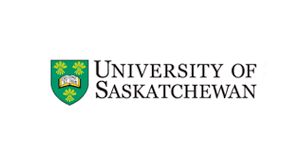University of Saskatchewan: Abracadabra to ABCs under scrutiny by USask researchers
Funding for the projects is from the Social Sciences and Humanities Research Council of Canada Insight Grant program. The aim of the program is to build knowledge and understanding about people, societies and the world by supporting research excellence. Projects will be funded for a total of two to five years depending on the award.
Exploring the historical role of female magic practitioners
Despite popular representations of witches, real female magic practitioners were rarely accused of witchcraft. In the Essex witch trials during the reign of Queen Elizabeth I, for example, only three percent of those accused were actually magic practitioners. These practitioners were more commonly understood as protections from witchcraft.
“In comparison to the hundreds of monographs on the unusual hot spots of the witch trials, and despite the fact it is estimated that hundreds of thousands were operating at any given time, not a single credible academic book deals with the female magic practitioner of pre-modern Europe,” said Dr. Frank Klaassen (PhD), professor of history in USask’s College of Arts and Science. He and Dr. Sharon Wright (PhD), professor of history in St. Thomas More College, are co-principal investigators of a new SSHRC Insight grant in the amount of $212,809.
Their research will investigate female magic practitioners from 1350-1550. It will include a close study of late medieval ecclesiastical courts in England, focused studies on known female practitioners, and a broad-based comparative survey of female practitioners in Western and Central Europe. Who were these women? What sorts of things did they do? How did they compare to male practitioners? And how and when did the church seek to regulate their activities?
The results of this project will include not only conventional scholarly outputs, but also public history outputs such as historically based games and an online museum exhibition featuring known female practitioners, the manuscript evidence for their activities, and even 3D vectors of the tools they used. Much of the funding will also support graduate and undergraduate student training, research, and research outputs.
Everything old is new again in teacher education debate
A team led by Dr. Lynn Lemisko (PhD), professor in Educational Foundations at USask’s College of Education, is studying the history of teacher education across Canada from 1925 to 1975 to learn how ideas about teacher preparation have evolved, and the similarities and differences among jurisdictions.
“There are always debates on teacher education, among educators, politicians, parents, and others about whether teachers need to have lots of subject matter knowledge, or if they need professional knowledge about how to teach,” said Lemisko.
Ongoing discussions on teacher education seem based on oversimplified ideas, and this study will uncover the complexities of past teacher education approaches and policies, including the ideas, opportunities, and constraints within which they developed, she said.
“Our contention is that if we can understand the early debates—the philosophical and theoretical ideas, the presuppositions and suppositions that shaped them—we can understand more about why we continue to have the same debates in the present.”
The 50-year period under study is when responsibility for teacher education across Canada transitioned from “normal schools,” which were directly monitored and guided by provincial governments, to autonomous universities. Saskatchewan and Ontario aren’t included in the new study because Lemisko and team member Dr. Kurt Clausen (PhD) of Nipissing University did a similar study on the two provinces as a pilot project.
The team, which also includes Dr. Frances Helyer (PhD) of Lakehead University and Dr. Helen Raptis (PhD) of the University of Victoria, aims to generate new knowledge that advances understanding of the debate over what and how teachers should teach, and who should decide.
The findings will be valuable to teacher educators, program developers, government policy makers and academics, and help bridge the gap in understandings that separate teacher education institutions from the general public, Lemisko said.
Other funded projects include:
Safety: cultural dimensions and program implications – College of Arts and Science – $88,097
Dr. Pamela Downe (PhD) will lead a team investigating the differences in how the concept of pandemic safety is perceived by populations vulnerable from structural and historical inequity, and by those who provide social services through non-governmental organizations. Findings will inform partner organizations in program development and policy to better understand and serve populations seeking safety.
Taking Care of Captives: moral decision-making, military virtue, and the welfare of prisoners in 18th century warfare – College of Arts and Science – $110,008
Dr. Matthew Neufeld (PhD) is the principal investigator on a project that will examine the moral decision-making process that occurs during warfare through a historical lens. Specifically, the project seeks to understand how human welfare, care and dignity is fostered between soldiers and prisoners of war, even in times of fighting and suffering.
A Community of Practice: Outcomes and Impacts of Graduate Level Education on Indigenous Land-Based Pedagogy – College of Education – $90,121
Dr. Alex Wilson (EdD), professor and director of the USask Aboriginal Education Research Centre, will investigate the academic and personal learning outcomes or impacts that educators in the K-12 school system have had on their students, schools and communities by using Indigenous land-based pedagogies. The research will also analyze how well graduate programs have prepared teachers to deliver land-based education.

